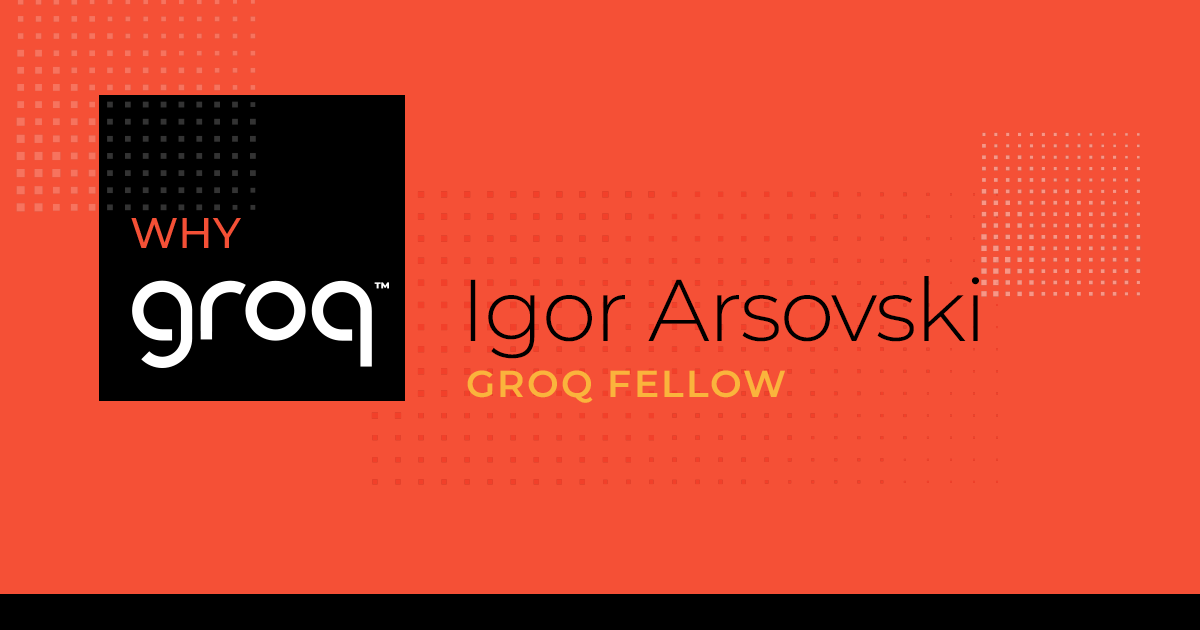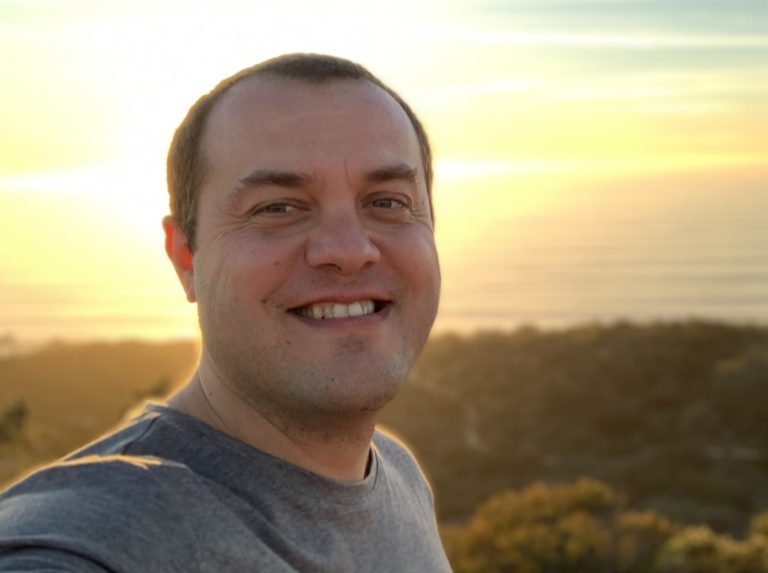
Groq is always hiring for talent density. We value sharing about our culture and talent transparently, so we sat down with Igor Arsovski, Fellow, to talk about his journey to Groq.

GroqChip™ is loaded with custom SRAM and regular compute, both well suited for advanced technology node customization. The architecture minimizes data movement and its fully deterministic behavior is perfectly suited to software/hardware co-optimization. This architecture allows compiler and hardware designers to know exactly when functional units will be triggered and how they need to be scheduled to minimize power-supply noise – one of the most challenging problems in today’s SoCs (system-on-a-chip).
Your journey to Groq actually goes back a ways. What’s the story there?
I actually learned about Groq back in 2016. The Tensor Streaming Processor architecture really stood out amongst the 1,000+ different ASICs that my team delivered over my 18 years in the ASIC business, 500+ of which I personally optimized by working closely with architects from across the world.
I still remember my first visit to Groq, when there were just 10 people on board – we had to borrow chairs from the company next door to fit everyone into a tiny room. I remember the welcoming nature of the team and the many whiteboard sessions optimizing GroqChip™ power, performance, and area (PPA). Jonathan Ross, CEO and Founder, was in on those meetings and I remember his excitement to build the radical PetaOp performance that Groq first brought to market.
Since then, how have you seen Groq evolve?
I always enjoyed the people and I’ve seen the team evolve into an even more talent-dense mix. There are top leaders from key system and chip companies who make today’s whiteboard sessions a real treat. It is truly amazing to see how Jonathan has grown the team and most importantly, maintained the supportive and innovative culture at Groq.
Along those lines, what do you think helps cultivate innovation?
I think an open culture is really important – everyone needs to feel a sense of security, to be able to share their ideas, to brainstorm. For example, I’m a hardware guy but I love talking to the software and architecture teams because I can provide context for them that makes their piece of the puzzle better and vice versa. By collaborating with no fear of judgment and getting the right people from the right disciplines all in the same room, you get cross-pollination – and that connectivity is the key to the next idea, big or small.
Engaging with this kind of open culture demands that you never get too comfortable – that’s how we push the world forward. And luckily I’m addicted to the discomfort that always seems to come with pushing the boundaries of possible.
You’ve been pushing boundaries your entire career. Who has been your inspiration along the way?
My passion for electrical engineering started with my father, Stefan Arsovski, who is an electrical engineer, inventor, and one of the wisest people I know. I still remember my first Electro Pioneer set that my dad bought for me, the taste of solder in my mouth while building my first radio, and the feeling of being dazed and confused when I mistakenly discharged a vacuum tube while trying to fix my parent’s TV.
In undergrad and grad school at the University of Toronto, I had the chance to learn from electrical and computer engineering legends like Sedra and Smith. When I joined IBM Microelectronics I also had the chance to learn from industry luminaries like DRAM inventor Robert Dennard, who generously kept their office doors open for starry-eyed kids like me.
In addition to IBM, you’ve been a leader at GlobalFoundries, Marvell, and Google to name a few. What have you learned about effective teaming along the way, especially in the compute space?
I am a firm believer in radical transparency, good metrics, and closed-loop systems. A company is like a living organism: you need a healthy nervous system to keep the organism fully functional. Transparency and clear communication are key to not only avoiding setbacks but also embracing opportunities. Good metrics maximize productivity, discourage politics, and improve work culture. And closed-loop systems keep everyone accountable.
What are you most excited about (or to put it another way, feel most challenged by) now that you’re at Groq?
Most of us are working for more than just a paycheck. Data center energy consumption is a growing component of total world energy consumption and an increasing number of engineers are concerned about the environmental impact of their work. Optimizing our product to get the maximum compute per Joule is more than just a business benefit. Our mission is not only about solving big problems, but also about solving these big problems sustainably. I am here to make every electron count.
Groq is hiring. Explore career opportunities to work with Igor and the rest of the team.